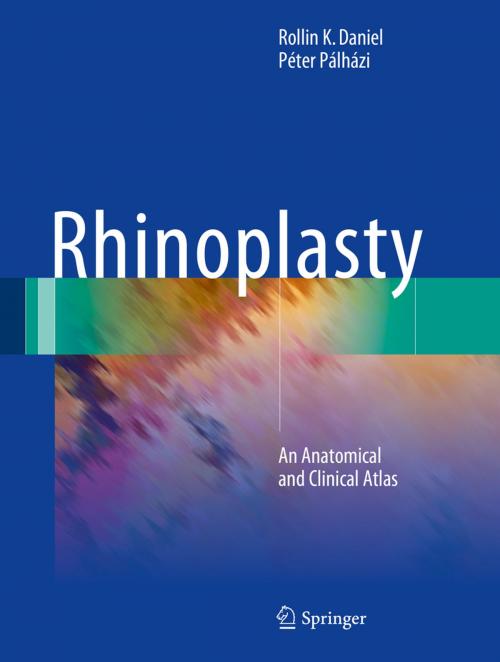Rhinoplasty
An Anatomical and Clinical Atlas
Nonfiction, Health & Well Being, Medical, Specialties, Otorhinolaryngology, Surgery, Plastic & Cosmetic| Author: | Rollin K. Daniel, Péter Pálházi | ISBN: | 9783319673141 |
| Publisher: | Springer International Publishing | Publication: | March 6, 2018 |
| Imprint: | Springer | Language: | English |
| Author: | Rollin K. Daniel, Péter Pálházi |
| ISBN: | 9783319673141 |
| Publisher: | Springer International Publishing |
| Publication: | March 6, 2018 |
| Imprint: | Springer |
| Language: | English |
In this atlas, sequential anatomical dissections are presented which show each component of the nose in unprecedented meticulous detail. Anatomical photographs are often paired with anatomical drawings and even intraoperative clinical photographs to illustrate each part of the nose.
Rhinoplasty: An Anatomical and Clinical Atlas, provides an in-depth understanding of nasal anatomy and a wide variety of operative techniques. In rhinoplasty surgery, the surgeon must understand the tight linkage between surface aesthetics, underlying anatomy, and selection of operative techniques. The underlying anatomy is only revealed to a limited degree at the time of surgery and the surgeon must then adapt the operative plan to fit the actual anatomy observed in the operating room to achieve the patient’s desired aesthetic result. Ultimately, the goal of this atlas is to allow the surgeon to see the operative techniques in both cadavers and clinical cases which represents the best possible learning approach.
In this atlas, sequential anatomical dissections are presented which show each component of the nose in unprecedented meticulous detail. Anatomical photographs are often paired with anatomical drawings and even intraoperative clinical photographs to illustrate each part of the nose.
Rhinoplasty: An Anatomical and Clinical Atlas, provides an in-depth understanding of nasal anatomy and a wide variety of operative techniques. In rhinoplasty surgery, the surgeon must understand the tight linkage between surface aesthetics, underlying anatomy, and selection of operative techniques. The underlying anatomy is only revealed to a limited degree at the time of surgery and the surgeon must then adapt the operative plan to fit the actual anatomy observed in the operating room to achieve the patient’s desired aesthetic result. Ultimately, the goal of this atlas is to allow the surgeon to see the operative techniques in both cadavers and clinical cases which represents the best possible learning approach.















